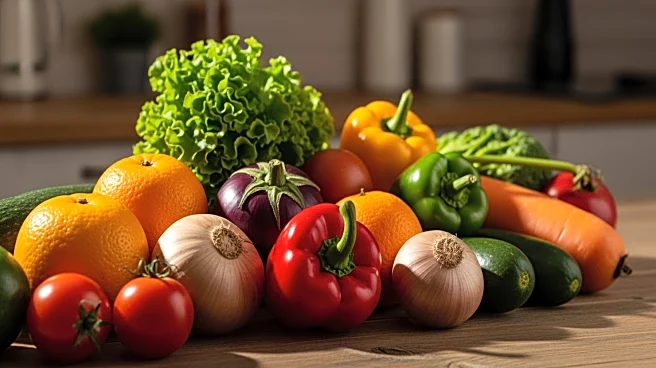What's Happening?
President Trump has signed an executive order to roll back tariffs on a range of food products, including coffee, bananas, and beef, effective retroactively from November 13. This decision comes as the administration faces pressure over rising grocery
prices, which have become a political issue following the Republican Party's poor performance in recent elections. The tariff exemptions are part of trade deals with four Latin American countries and aim to address consumer concerns about affordability. The White House stated that these products cannot be produced in sufficient quantities domestically, justifying the need for lower import taxes.
Why It's Important?
The rollback of tariffs on food products is a strategic move to alleviate the financial burden on American consumers, who have been facing increased grocery costs. By reducing import taxes, the administration hopes to lower prices and improve affordability, addressing a key concern among voters. This decision also reflects a shift in the administration's approach to trade policy, as it seeks to balance protectionist measures with consumer needs. The move could have significant implications for the US food industry, potentially increasing the availability of imported goods and impacting domestic producers.
What's Next?
The tariff exemptions are expected to lead to immediate price reductions for the affected food products, providing relief to consumers. However, the administration may face challenges in ensuring that these benefits are passed on to consumers, as companies might still adjust prices based on other factors. Additionally, the US Supreme Court is currently reviewing the legality of Trump's tariff policies, which could influence future trade decisions. The administration will likely continue to monitor the economic impact of these exemptions and may consider further policy adjustments to address ongoing inflation concerns.














